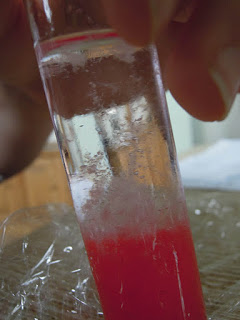Earth Day – try some of these websites on environmentalism for kids. Step one is: does your kid know which planet she lives on, and what it looks like? Here’s some crafts to help:
Explore nature around you – bring a pooter and a magnifying glass.
You can collect some food for eating e.g., dandelions!
Step two is, how to be more environmentally friendly. I don’t particularly care whether you believe in man-made global warming: pollution is bad. Using up resources and destroying biodiversity is bad. And the solution is simple: consume less. So talk about how to use, buy and waste less. We learnt about where our landfill goes, and how glass, aluminium and plastic are recycled.
1876 the first ever National League baseball played – so play baseball.
Discovery Day (Brazil)
Brazil is the world’s 5th largest country, and the world’s largest producer of coffee. It is named after the brazil wood, from the Latin brasa, ember, because the wood is red like an ember and was exported to make red dyes. (But brazil nuts come from brazil nut trees.)
Humans lived here for at least 11,000 years and when the Portuguese arrived in a fleet captained by Pedro Álvares Cabral in 1500 there were around 7 million indigenous people here.
For the first two centuries, the Europeans and indigenous people just fought each other. By the 16th century sugar was its largest export and slavery its largest import – to make the sugar. Then in the 1690s there was the Brazilian Gold Rush which brought a load more Portuguese over.
In 1807 the capital of the Portuguese empire was moved from Lisbon to Rio de Janeiro, Brazil, after Napoleon invaded Portugal. In 1815, the empire became the United Kingdom of Portugal, Brazil and the Algarves – but the Portuguese weren’t happy that their monarchy had abandoned them, and Brazil wanted independence, so it didn’t last.
In 1822 Brazil gained independence, albeit under the Portuguese Prince Regent, Pedro, who declared himself Emperor of Brazil (can you have an empire of one country?). Then Portugal had a civil war and Pedro left to sort it out, leaving his five-year-old son as the new emperor. Wow.
Brazil fought a lot of wars with its bordering countries while Pedro II was in power, and this affected the economy and made everyone miserable, so he was booted out by a military coup d’état and Brazil became a Republic. Since then they’ve had a lot of brutal repression and coups and corruption, but they are currently stable and democratic. Which is nice.
Learn about the Amazon rainforest – make a rainforest terrarium, rainforest cookies, or a playdough rainforest.



























 1977 regular supersonic London>NY
1977 regular supersonic London>NY 





